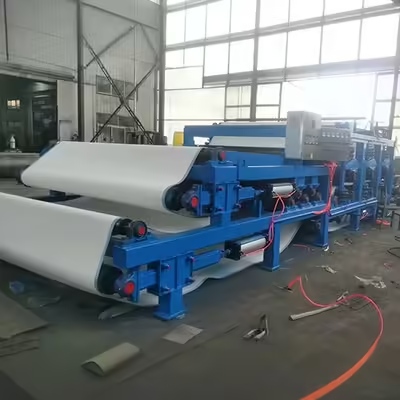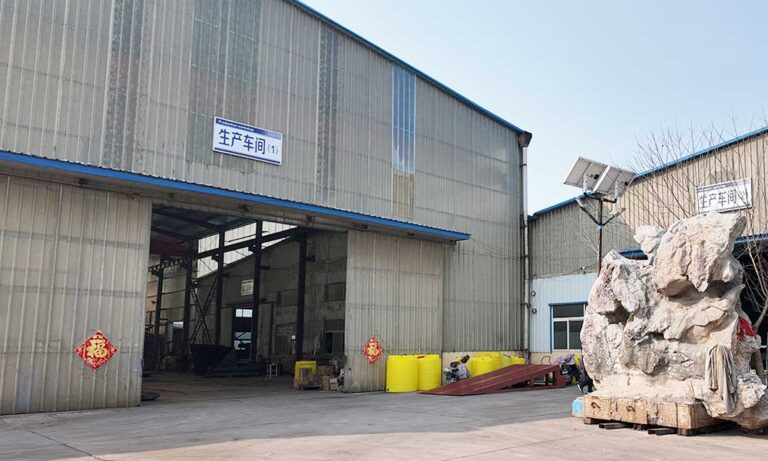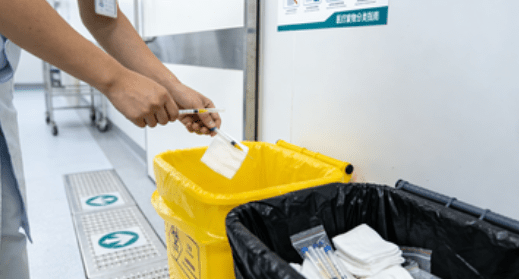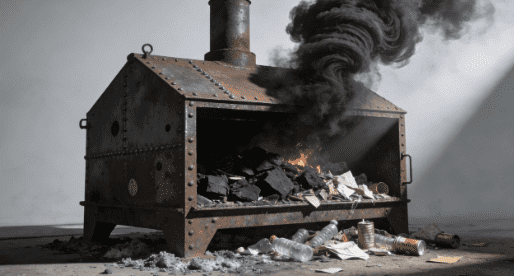Welcome to My Blog! 🌟
I’m so glad you’re here! Before we jump into the exciting content, I’d love for you to connect with me on my social media platforms. It’s where I share extra insights, interact with our amazing community, and post regular updates. Here’s how you can join the conversation:
📘 Facebook: Follow me on Facebook for more updates
Now, let’s dive into the journey ahead. I hope you find everything here both engaging and valuable. Together, let’s explore, learn, and grow! 🚀
Table of Contents
Introduction

When it comes to industrial filtration, especially in wastewater treatment, the importance of belt press filters cannot be overstated. These machines play a crucial role in the separation of solids from liquids, ensuring that various processes run smoothly. But what makes a good belt press filter, and how do you choose the right belt press filter manufacturer?
In this comprehensive guide, we will explore the top 5 belt press filter manufacturers, their strengths, and the factors you need to consider when choosing one of the best belt press filter manufacturers for your business. Understanding these aspects will ensure you make an informed decision based on your specific filtration needs, with the best belt press filter manufacturers providing the optimal solution for your requirements.
What Is a Belt Press Filter?
Before delving into the manufacturers, it’s essential to understand what a belt press filter is and how it works. A belt press filter is a mechanical device used to separate solids from liquids by passing a slurry between two porous belts. The system uses pressure, applied through a series of rollers, to remove water from the solids, resulting in a dewatered cake.
The key components of a belt press filter include:
- Filter belts: Typically made of polyester or polypropylene, these belts allow for the passage of liquids while retaining solids.
- Pressure rollers: These rollers squeeze the slurry between the belts, applying pressure to expel the liquid.
- Drive system: It powers the movement of the belts, ensuring a steady and efficient filtration process.
How to Choose the Best Belt Press Filter Manufacturer

Selecting the right belt press filter manufacturer can be a challenging task due to the variety of options available. With each belt press filter manufacturer offering different features, designs, and support services, it’s essential to carefully assess various factors before making your decision. A belt press filter is a significant investment in your production or wastewater treatment processes, so it’s critical to find a manufacturer who provides a reliable, high-quality solution tailored to your specific needs. Below are the key factors to consider when choosing the ideal belt press filter manufacturer:
1. Experience and Reputation of the Manufacturer
When choosing belt press filter manufacturers, experience and reputation matter. Look for belt press filter manufacturers who have a proven track record of producing high-quality products over many years. A well-established manufacturer will likely have a strong understanding of industry challenges, as well as the technical expertise needed to deliver a reliable, effective filtration solution.
Experienced belt press filter manufacturers will also have a history of working with various industries such as municipal wastewater treatment, food processing, and chemical processing. A solid reputation in the industry often indicates that the manufacturer has successfully addressed the challenges faced by these industries.
2. Customization and Flexibility
Another important factor to consider when selecting belt press filter manufacturers is the ability to customize the filter to suit your unique needs. Not all applications are the same, and a one-size-fits-all approach might not be the best solution. The ideal belt press filter manufacturer should offer flexibility in their designs, allowing you to choose elements such as filter capacity, belt material, automation level, and other critical features.
Customization options might include different filtration stages or variations in belt types that can better handle specific materials or environmental conditions. The ability to modify the design according to your specific requirements will ensure maximum efficiency and performance for your system.
3. Energy Efficiency and Sustainability
With the growing emphasis on environmental responsibility, choosing belt press filter manufacturers who prioritizes energy efficiency and sustainability is crucial. Belt press filters that consume less energy help to reduce operational costs over time, making them a cost-effective solution in the long run.
Look for belt press filter manufacturers that design their systems with energy-saving features, such as improved motor efficiency, better dewatering processes, and reduced water consumption. Additionally, some manufacturers might offer eco-friendly solutions, such as the use of recyclable materials in their construction or systems designed to minimize waste.
4. Support and Maintenance Services
Purchasing a belt press filter involves more than just installation. You’ll also need to ensure that ongoing support and maintenance services are available. Choose a belt press filter manufacturer who offers reliable customer support, including technical assistance and troubleshooting. This is especially important if any issues arise during operation.
Reputable belt press filter manufacturers often offer maintenance contracts, where they provide regular servicing, inspections, and updates to keep the filter operating at its best. It’s also vital to ensure that spare parts are easily accessible, as equipment downtime can be costly.
5. Cost-Effectiveness
While quality should always be the top priority, cost is also a key factor when selecting belt press filter manufacturers. Compare the pricing from various belt press filter manufacturers and evaluate the overall value of their products. Consider the initial cost of the equipment, as well as long-term operational costs, maintenance, and spare part availability.
It’s also important to weigh the total cost of ownership, which includes not only the upfront cost of purchasing the filter but also the energy consumption and maintenance requirements over time. A belt press filter manufacturer who offers a balance of affordability and high-quality components can help lower your long-term operational expenses.
Top 5 Belt Press Filter Manufacturers
To help guide your decision-making process, here are the top 5 belt press filter manufacturers that stand out in the market:
| Manufacturer Name | Key Strengths | Notable Features |
|---|---|---|
| Alfa Laval | Global presence, extensive expertise | High energy efficiency, customizable models |
| Andritz | Strong track record in industrial applications | Advanced automation, highly durable filters |
| Evoqua Water Technologies | Focus on water treatment | Energy-efficient designs, sustainable solutions |
| FLSmidth | Leading in mining and minerals industries | Robust filters, high capacity for heavy-duty applications |
| Shandong Lushun Environmental Technology Co., Ltd. | Focus on environmental protection technology | Environmental protection technology innovation, manufacturing of environmentally friendly products |
These manufacturers have proven track records of providing reliable, efficient, and sustainable belt press filter solutions across various industries.
Factors That Affect the Performance of Belt Press Filters
When evaluating belt press filters, it’s important to consider several factors that affect their overall performance and efficiency:
1. Slurry Characteristics
The composition of the slurry plays a significant role in determining the efficiency of the belt press filter. Factors like solid content, particle size, and viscosity can impact filtration performance. A higher solid content may require a more robust filter design to achieve optimal performance.
2. Filter Belt Material
The material of the filter belt is crucial in determining the durability and performance of the filter. Polyester and polypropylene are common materials used in belt press filters due to their strength and resistance to wear. Some manufacturers, like Shandong Lushun Environmental Technology Co., Ltd., also focus on eco-friendly materials that contribute to the sustainability of the system.
3. Roller Pressure and Configuration
The pressure applied by the rollers impacts how much liquid can be removed from the slurry. A higher pressure generally results in better dewatering, but the pressure must be balanced to avoid damaging the filter. Manufacturers with advanced technology, such as Andritz, optimize this aspect through automation and precise control.
4. Feed Rate
The speed at which slurry is fed into the system can also affect the efficiency of the belt press filter. A faster feed rate might reduce the time for dewatering, while a slower feed rate can increase efficiency but may require more time for processing. Manufacturers like Evoqua focus on energy-efficient designs that help optimize the feed rate for best performance.
By considering these factors and choosing from well-regarded belt press filter manufacturers, you can ensure that your filtration system operates efficiently and sustainably for years to come.
Maintenance and Care for Belt Press Filters

Maintaining a belt press filter is essential to ensuring its long-term performance and preventing unexpected downtime. Here are some tips for proper maintenance:
- Regular Inspection of Belts
Inspect the belts frequently for signs of wear and tear. Replace them if necessary to prevent damage to the system. - Cleanliness of Components
Keep all components, including rollers and belts, free from debris. Regular cleaning can help maintain optimal filtration efficiency. - Lubrication of Moving Parts
Lubricate rollers and other moving parts to prevent friction and wear. Follow the manufacturer’s guidelines for the appropriate lubricant type. - Monitoring Pressure Levels
Ensure the rollers are operating at the correct pressure. Regularly monitor the pressure to avoid overloading the system. - Replacement of Filter Parts
Filter parts, including belts and rollers, should be replaced as they wear down. Using damaged parts can reduce the effectiveness of the filtration process.
Conclusion
Choosing the right belt press filter manufacturer is crucial for the efficiency and longevity of your filtration system. By considering factors such as belt press filter manufacturers’ reputation, customization options, energy efficiency, and support services, you can make an informed decision. The top 5 belt press filter manufacturers listed above offer a range of options that cater to different industrial needs, ensuring you get the right equipment from trusted belt press filter manufacturers for your specific application.
FAQ
What is a belt press filter used for?
A belt press filter is primarily used in industrial applications to separate solids from liquids, often in wastewater treatment, food processing, and mining industries.
How do I choose the right belt press filter manufacturer?
Look for manufacturers with a proven track record, strong support services, customization options, and energy-efficient products. Compare different options to find the best value.
What factors affect the performance of a belt press filter?
Key factors include slurry characteristics, filter belt material, roller pressure, feed rate, and the maintenance of the system.
How often should belt press filters be maintained?
Belt press filters should be inspected regularly, with maintenance tasks such as cleaning, lubrication, and part replacement carried out according to the manufacturer’s recommendations.
Are there any eco-friendly belt press filter options?
Yes, several manufacturers offer energy-efficient models and sustainable solutions that reduce water and energy consumption during the filtration process.






